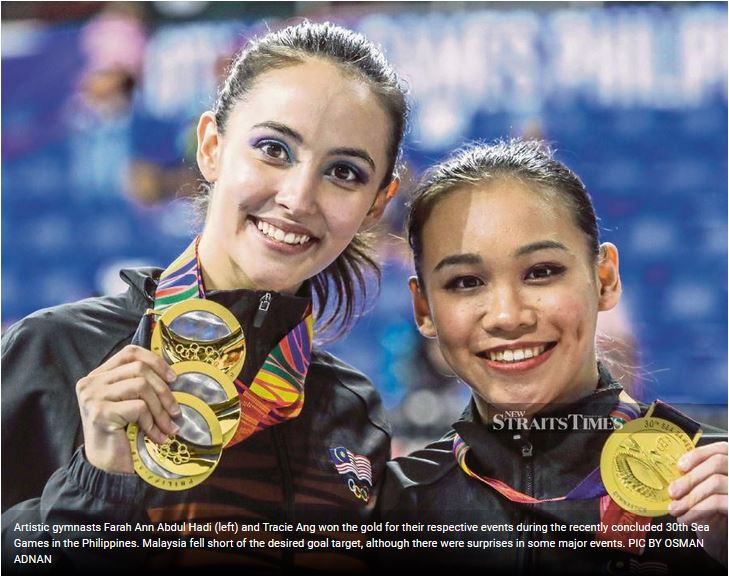Lessons from the games
Emeritus Professor Tan Sri Dato' Dzulkifli Abdul Razak
Opinion - New Straits Times
December 21, 2019
THE 30th Southeast Asian (SEA) Games that started with a positive note for the country, bagging gold after gold in the beginning, turned out to be a big disappointment.
This seems to be the consensus all round although there were major surprises in some unexpected events that must be duly recognised. Still it is not enough to lift the spirit in terms of the overall medal tally that fell short of the modest target set.
Ultimately, we have to settle for a spot lower than the desired goal marked by a very large medal gap from the one position above.
Like previous experiences, reactions to similar situations got temperaments flying, igniting the favourite blame-game fit for a new Games record.
Fortunately, this was short-lived, thanks to the youth and sports minister, who reportedly took full responsibility for the debacle.
Recognising that prior consultation and negotiations were done to arrive at the final and desired target, he did not want Malaysian athletes to be burdened with “negative” consequences.
All the wiser, coming from the youngest in the cabinet. After all, most of the athletes had done their level best, although allegedly some did better under the circumstances. What with the newly appointed “adviser” to cheer them on as it were.
As the minister tendered his apology, with the promise to look into what could be improved, he single-handedly restored the aura of sports to where it should be.
That is, foremost it is about participating and bonding, and not just winning at all cost. It must be said, however, this time around, the Malaysian contingent did suffer from “unfair” decisions leading to protests to restore its dignity in the eyes of the world.
All said and done, Malaysia can stand tall with its contingent kept intact and not torn asunder due to egocentric finger pointing.
This is more pertinent considering what the Malaysian Trades Union Congress (MTUC) (echoing Cuepacs), in a recent statement (NST, Dec 15), calling for the need to protect civil servants from “certain ministers who exercise their powers arbitrarily”.
Allegedly “victimisation”, “cold-storaged” and “abuse of power” were implied. More so since “the affected officers have not been given the chance to defend themselves as they are forced to follow ministerial orders”. Examples included the case of those with “excellent record” facing the brunt despite being close to the retirement age.
Their contracts were not renewed, if not shortened. And, worse, it was cited that “there was limited scope for these officials to seek justice”.
Therefore, the urgent need for processes of rectification to ensure justice and human rights.
While this might be superfluous in the context of the SEA Games per se, it is not so from the viewpoint of the ministry.
Only that in this situation, it is moot, as the minister had humbly accepted full responsibility. The buck stops with him. Meaning the building of trust and teamwork so crucial for nation-building continues rather than being destructive in preserving the interest of the few.
Putting this in the context of the ongoing Kuala Lumpur Summit, it is hoped that this is one vital lesson that could be learnt beyond any short-term solutions, and instant gratification.
Instead it embraces a longer term goal anchored on values like justice, honesty and sincerity emerging from the sense of humility for humanity.
The moral of the story is that while gold medals are important as a hallmark of success in the field of sports, intangible positive values are the gold standards that must be adhered to if the leadership is to sustain the wider meaning of successes all round.
This is one lacuna that must be urgently closed.
The writer, an NST columnist for more than 20 years, is International Islamic University Malaysia rector
The views expressed in this article are the author’s own and do not necessarily reflect those of the New Straits Times

